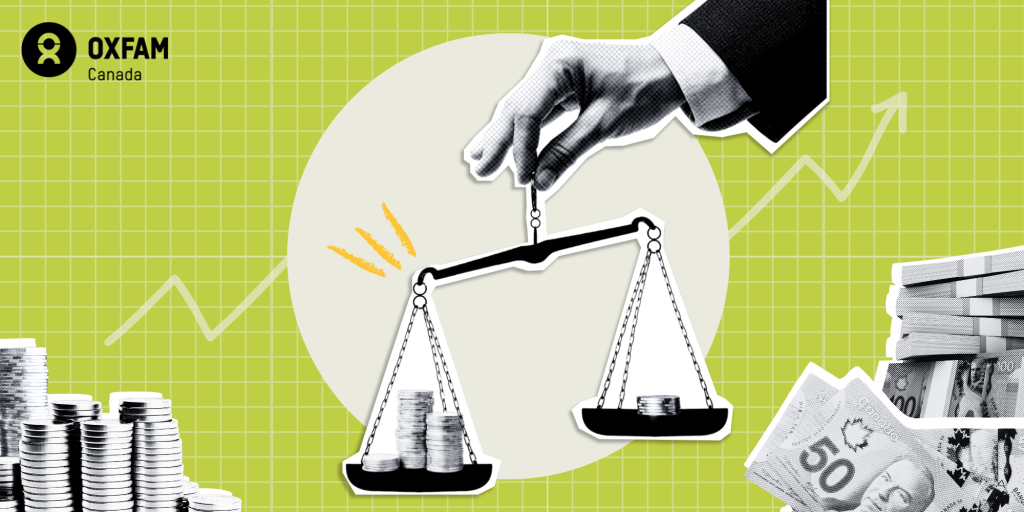Oxfam and ally NGOs Urge Canada to Act on Gaza in Joint Press Briefing
Earlier this week, Israel announced that it will allow a limited amount of aid into Gaza. At the same time, the Canadian government - alongside the United Kingdom and France – put out their strongest statement yet, warning Israel that if they did not cease the renewed military offensive and lift its restrictions on humanitarian aid, further concrete actions will be taken by Canada, the UK and France.
Canada’s joint statement was a step in the right direction, but Canada must follow those words with immediate action to stop the flow of all direct or indirect arms and arms components to Israel and to ensure humanitarian aid can reach those in need, and work for a permanent ceasefire that prioritizes the protection of civilians.
We at Oxfam are deeply alarmed by the worsening humanitarian catastrophe in Gaza. As aid is being blocked, weaponized, and politicized, civilians are paying the ultimate price. In response, leading humanitarian organizations - including Oxfam Canada, Save the Children Canada, Doctors Without Borders (MSF), and Islamic Relief Canada - came together to sound the alarm and brief Canadian journalists on the grave realities facing civilians and aid workers alike. Here's what they had to say.
On the impact of the blockade on children and their families
Danny Glenwright of Save the Children opened the session by describing the situation in Gaza as a profound moral failure in which children are paying the highest price. He explained that a quarter of a million people are experiencing famine-like conditions and that children and the elderly are dying from starvation. This is not due to a food supply issue, but rather a deliberate denial of access and blockade by the Israeli military of trucks carrying food, water, and medicine.
Regarding the newly proposed military-controlled aid system introduced by Israel, Glenwright stated, "Aid must be delivered based on need, not through political or military filters," and added that "families may now be forced to choose between staying and starving or fleeing their homes yet again." He called on Canada to keep its promise to stand up for human rights by acting now and standing with the children of Gaza before it’s too late.
On the impact of continued attacks on healthcare facilities
"We're critically running low on basic supplies needed for hospital operations, such as gloves and sterile compresses. We need medication. We have third-degree burns, especially on children, that we are unable to treat adequately", said Sana Beg Executive Director of Doctors Without Borders (MSF) , recounting the experiences of the MSF team on the ground in Gaza.
On the problematic new INGO registration process
Lauren Ravon, the Executive Director of Oxfam Canada, expressed deep concern over Israel’s newly proposed registration process for international non-governmental organizations (INGOs). The process would require humanitarian agencies to disclose sensitive information about their employees, thereby violating their legal obligation to protect staff and putting aid workers at risk of threats, deportation, or even death.
Regarding the proposed military control of aid entering Gaza, Ravon said, "Granting Israel the power to decide who receives aid, where they receive it, and from whom, transforms relief into a tool of coercion." She added that working directly with the military to deliver aid is terrifying, especially since humanitarian organizations already operate under rigorous standards to prevent the diversion of aid.
On Starvation as a Weapon of War
CEO Usama Khan, speaking on behalf of Islamic Relief Canada, said that even after being on the ground in Gaza for over 27 years, Islamic Relief's local teams say that this current war is unlike anything they have experienced. Khan said the preventable, man-made famine and starvation is clearly a weapon of war that Israel is using to force Palestinians out of the territory or into ever-shrinking, confined areas.
He emphasized that "the only way to ensure aid reaches people in need is to pressure Israel to adhere to an immediate ceasefire, end its siege, protect civilians, and enable full, unimpeded humanitarian access."
While Canadians and people around the world have been generous, Oxfam currently has over $2.5 million worth of goods stuck in neighboring countries since Israel imposed a total siege. We are doing everything we can, but without a political solution and immediate international pressure, the suffering will only worsen.
Aid alone cannot solve this crisis, but you can help by:
- Demanding an immediate and permanent ceasefire: A full and lasting ceasefire is necessary to allow aid in, protect civilians, and begin the recovery process. Temporary pauses are not enough.
- Calling for unimpeded aid access: The aid blockade must end. Israel must allow fuel, food, and essential supplies into Gaza now.
- Calling on governments to stop arms transfers and end complicity: Governments have a legal obligation under the Genocide Convention to prevent atrocity crimes. No state should send arms to a conflict in which civilians and aid workers are systematically targeted.

